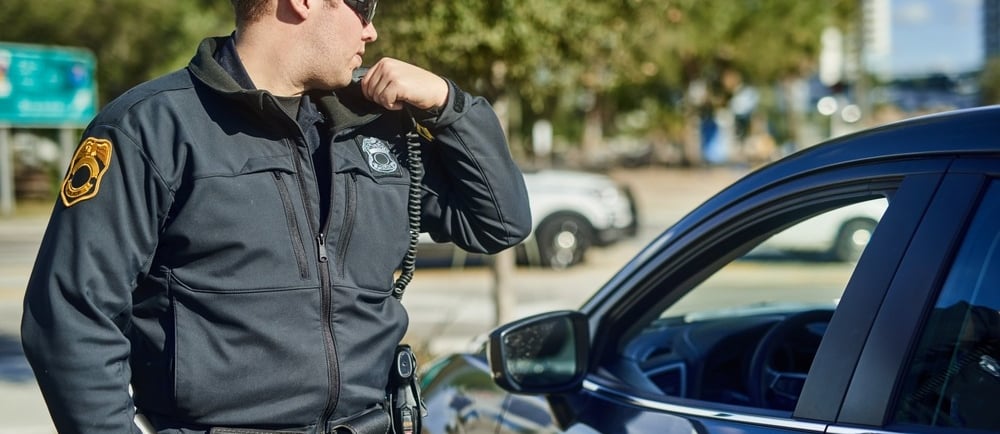Should You Talk to the Police Without a Lawyer Present?
Thinking of talking to the police without a lawyer? Don’t. Learn why even innocent people should never answer police questions without legal counsel present.
Mark D Hauser
6/25/20253 min read


If the police want to talk to you—whether it’s on the street, in your home, or at the station—one question should be at the front of your mind: “Should I talk to them without a lawyer?”
The short answer? No. You should never speak to the police without a lawyer present. Even if you're innocent. Even if it’s “just a few questions.” Even if you want to clear things up.
With over 30 years of experience defending clients charged with crimes, I’ve helped people navigate this issue and avoid harsh outcomes. Here’s how I approach suspects potentially talking to the police situations. Talk to an expungement lawyer in Philadelphia or any reliable lawyer who can assist with your specific case.
What Are Your Rights When Dealing With the Police?
Thanks to the Fifth and Sixth Amendments of the U.S. Constitution, you have the right to remain silent and the right to legal counsel. These rights are the basis of what we call your Miranda rights.
When police question you while you’re in custody, they’re required to tell you: “You have the right to remain silent. Anything you say can and will be used against you in a court of law. You have the right to an attorney…”
Once you invoke these rights—especially by saying you want a lawyer—the police must stop questioning you.
What Happens If You Talk Anyway?
If you decide to talk to the police without a lawyer, here’s what can happen:
They can use anything you say against you in court—even if you didn’t mean it that way.
You might accidentally admit to something criminal without even realizing it.
You could make statements that seem inconsistent, which prosecutors will use to challenge your credibility.
You don’t know what evidence they actually have, and you might unknowingly fill in gaps in their investigation.
Even saying “I didn’t do it” or trying to explain your side can hurt you. Police are trained to ask questions in ways that get people to talk—even when it’s not in their best interest.
“But I’m innocent. Why Would I Need a Lawyer?”
This is one of the most common—and dangerous—assumptions people make. Innocent people can and do get charged. Trying to “explain things” often gives investigators ammunition they didn’t have before. You can’t un-say something later. Having a lawyer doesn’t make you look guilty—it protects you from being misunderstood, misquoted, or misused.
How Silence Works Under Law
If you’re being detained or questioned about a crime:
You have the right to remain silent.
You must clearly state that you are invoking that right.
Simply staying quiet isn’t enough—you should say: “I am invoking my right to remain silent. I want a lawyer.”
Once you say that, officers are legally required to stop questioning you. If they continue, anything you say afterward may be inadmissible in court.
What If You Haven’t Been Arrested?
Even if you haven’t been arrested, you still don’t have to answer police questions.
If you’re not being detained, you can ask, “Am I free to go?”
If the answer is yes, walk away politely.
If the answer is no, ask for a lawyer immediately and say nothing else.
Never lie to the police—but also, don’t volunteer information.
What Should You Say If Police Start Asking Questions?
If the police approach you, keep it simple and respectful. You can say:
“I’m not answering any questions without a lawyer.”
“I want to speak to an attorney first.”
“I’m invoking my right to remain silent.”
Then say nothing else. Don’t argue. Don’t explain. Don’t try to talk your way out of it. Need more advice? Ask your criminal defense lawyer serving West Chester, PA.
How a Criminal Defense Lawyer Can Help Right Away
An experienced lawyer can:
Speak to police on your behalf
Prevent charges from being filed at all
Protect you from self-incrimination
Negotiate favorable outcomes if charges are unavoidable
In Philadelphia County, where police and prosecutors are aggressive in building cases—even for first-time offenses—it’s critical to have someone in your corner from the start.
Final Word: Don’t Go It Alone
If police are questioning you—even if you think it’s minor—you need legal representation. Your future could be at risk, and once something is said, it’s often impossible to take back.
Whether you’ve already spoken to police or are being asked to come in for questioning, I’m here to help. With over 30 years of experience in criminal defense across the state, I’ll make sure your rights are protected from the very first moment. Contact Mark D. Hauser, Attorney at Law today for a confidential case evaluation.
